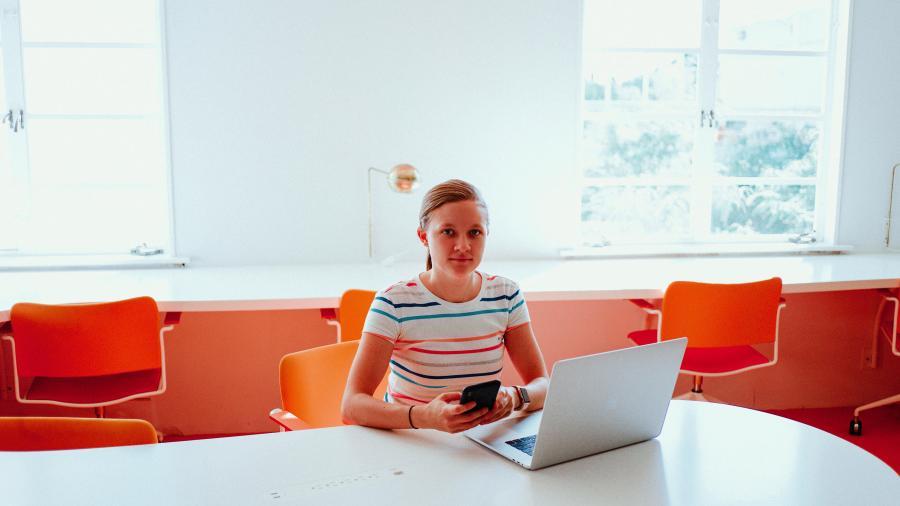Westmont Magazine Using Artificial Intelligence Authentically and Ethically

Heather Chmura ’16 launched her career at the age of 14 as the youngest franchise owner of a Wetzel’s Pretzels in Las Vegas, managing more than 50 employees. Busy with her business, she went to high school online. But she decided to attend college in person. After searching for a small school with overseas programs and a good religious studies department, she joined her sister, Becky Chmura ’14, at Westmont.
She majored in economics and business, participated in the Westmont in Northern Europe semester, took Emmaus Road trips to Japan, South Korea and Taiwan and studied Business at the Bottom of the Pyramid with professor Rick Ifland to help establish microfinance businesses in Haiti.
“I experienced new cultures and met amazing people at Westmont I’ll know the rest of my life,” Heather says. “The intense and difficult education prepared me for the hard work of life, especially with a startup.”
After graduating, she moved to San Francisco without a job and got a position working with data at Originate, where she later became chief of staff for CEO Rob Meadows. When he left to help launch a new company, the AI Foundation, she joined the founding team. She began as director of product engagement and chief of staff/product manager, became senior director of business and strategy, and now serves as vice president for business operations.
The artificial intelligence company seeks to develop ethical AI agents representing public figures that can interact online with millions of people at a time. The prototype, a digital Deepak Chopra, has been programmed with all the author’s works so it can answer questions and carry on conversations. “The Tonight Show with Jimmy Fallon” introduced Digital Deepak to audiences in January 2020.
Heather envisions business leaders creating AI versions of themselves to interact with consumers or other audiences for good purposes, creating a much-needed relational component online. “The human is so important to technology as we’re experiencing a lack of human connection,” she says. “We’re passionate about what happens when humans are replicated digitally—when we can digitally back up our brain.” The AI software may arrive on the market as early as the fall.
The nonprofit side of the business focuses on detecting deepfake videos, a dangerous technology that could deceive voters during an election as people find it almost impossible to differentiate deepfake videos from real ones. A compromising video—true or false—can ruin someone’s campaign. AIF is collaborating with UC Berkeley to develop Reality Defender, which they’ll give to political campaigns and media outlets for free. The algorithm compares subtle mannerisms of whatever politician appears in the video with their actual mannerisms mined from an extensive trove of authentic video. The software can then assess whether the two sync up, thus bringing truth to imaging. The pandemic has put this work on hold.
Heather splits her time between Las Vegas, where she lives, and the AI Foundation in San Francisco. Her work in business development requires extensive travel as she helps build the company. To date, they’ve raised three rounds of funding, enough for the foreseeable future with multiple streams of revenue.
Studying art history and design at Westmont inspired Heather’s continuing passion for art. She loves the freedom of painting watercolors and the mental break it provides. She collects modern art in her Las Vegas home and brings her love for art into her work with technology.
“Westmont was a huge experience for me,” she says. “It helped me grow as a person. I could not have helped start this company without the Westmont grounding.”